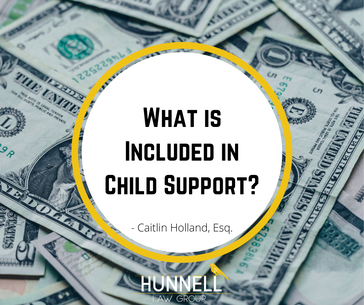 Fighting with Family: Co-Parenting During the Holidays For many, the Holiday Season is full of cheer excitement and love. For others, it’s a time of stress and emotion. For parents who are co-parenting for the first time after a divorce, the Holiday Season can bring about difficult challenges and emotions that are brand new and hard to navigate. Co-Parenting is tough, regardless of the time of year. However, this time of year is especially challenging. Parents are obliged to miss time with their children during the holidays, abandoning family traditions and forced to implement new ones. Arranging time with extended family, going to pageants, concerts, and year-end parties all while navigating this new family arrangement can be overwhelming. Time Sharing The best way to navigate co-parenting during holidays is simply to make sure that you have a plan. If you have advance notice, it’s easier to make arrangements with family and friends, etc. to see your children for the holiday or introduce new family traditions. Your parenting time agreement should implement some form of time sharing for holidays and special days. Some parenting plans even reference Court Holiday Schedules as the default parenting arrangement. The key is to make sure that you have an arrangement in effect for parenting time over the holidays well in advance so that if there are any issues or changes that have to be made, both parents can address them and make their own plans with the children. If your child’s other parent refuses to allow you to see your child over the holidays, you do have options. If you have an agreement that allots specific holiday parenting time and the other parent is not abiding by that agreement, you should consider mediation or counselling. If that is not an option, you may make an application to the Court to enforce that agreement. However, it is important to note that both at Thanksgiving and the week between Christmas and New Year’s Day, the Judges are not all present and, therefore, the Court only hears emergent matters. Emergent applications are made when the issue cannot adequately be addressed within a typical twenty-four day motion period and must be heard immediately. You should contact an attorney to determine whether your case could be considered emergent and heard by the Court during that time. Most holiday parenting time enforcement applications are not emergent. In that case, you will have to file an application with the Court that will not be heard until at least twenty-four days after you file your application. If you do not have a parenting time arrangement that addresses parenting time, you can try to make arrangements on your own in writing, or agree to attend a mediation to establish a holiday parenting time agreement. Again, make sure you give yourself enough time in advance of the holidays, so any issues that have to go before the Court can be resolved in advance of the holidays. If you cannot come to an agreement with your co-parent, then you will have to file an application to establish a parenting time arrangement. Again, this will not typically be considered an emergent action, although you should consult with an attorney if you think it could be. In most cases, it will take that same twenty-four days, at least, for your application to be heard by the Court. Acknowledging the Best Interests of the Child Do not put your child in the middle of any conflict. The best interests of the child is the guiding principle for all family law matters in New Jersey. In all aspects of co-parenting, including time sharing, it is important to remember that you should be serving your child’s best interests, not your own. After you finalize your holiday parenting time arrangement with the other parent, make sure to spend some time talking to your child about what to expect during the holidays and acknowledging and managing their emotions. Try to be flexible with your own expectations. Of course, all parents want to be with their children on Christmas morning, but if that means that you force your spouse to drive through a blizzard to effectuate your parenting time, that’s probably not in the child’s best interest. Likewise, if great-grandma is going to be a Christmas dinner at the other party’s house and great-grandma has been very ill and your child would like to see them, it may be beneficial to your child to see their grandparent. When you do have your child with you for holiday parenting time, make sure you’re cognizant of the conversations happening around your child. Do not let your family and friends disparage the other parent in the presence of your child. If you anticipate your family saying things that could make your child uncomfortable, it may be worth it to have a conversation with your family and friends ahead of time. There’s always next year It is important to remember that this Holiday Season is not be-all and end-all. If something did not work this year, make sure that you address it before next year. If there was a problem that needs to be addressed in mediation or by the Court, make sure to address it sooner than later, so that everything is in effect for next year. If you have any questions or concerns about how to navigate the holidays as a co-parent, visit HunnellLaw.com/contact to request an appointment with an attorney.
0 Comments
 In New Jersey, child support is calculated using a formula established by statute.[1] The Child Support Guidelines take into account the number of children, the age of the children, the income of the parents, the number of overnights the children spend with the parents, etc.[2] The Child Support Guidelines do not apply to all families and in those cases, the Court will establish an appropriate amount of support. Additionally, if the Court finds it appropriate, it may choose to deviate from the Guidelines. Once established, child support remains in place until the child is emancipated, either by circumstance or automatically by age, with few exceptions. The parent who has the obligation to pay child support pays the full amount to the other parent, usually weekly. Although child support is not paid directly to the child, it is paid for the benefit of the child to ensure that their basic needs are met. The point of child support is to split financial responsibility for raising the child(ren) between both parents.[3] What expenses are covered by a child support obligation? A detailed list of the expenses included in child support under the Guidelines can be found in Paragraph 8 of Appendix 9A to the New Jersey Rules of Court.[4] Under the Guidelines, child support covers fixed costs including shelter. Shelter costs include: rent, mortgage, utilities, etc. of the child’s primary home. It also includes variable costs including transportation and food; as well as controlled costs such as clothing, entertainment, and furnishings for the child. The child support amount also includes predictable recurring expenses like field trips, extra-curricular activities, and school supplies. The first $250 per year in out-of-pocket medical costs is also included in child support. While work-related child care costs can be included in child support, if used in the calculations, tuition for private, parochial schools, vocational schools or post-secondary education are is not included in child support. However, expenses, that do not include tuition not tuition, incurred while attending college may be included in child support. Some of these expenses are not applicable to me. Can my spouse ask for a modification? No. If one of these included expenses is not applicable to a certain family, that does not constitute a basis to deviate from the guidelines or modify a child support award. Appendix 9A, Para. 8. My child’s parent will not buy any clothing for our child because he or she says that they pay child support and should not be obligated to pay anything else. Are they correct? No. The amount of time that the child spend with each parent directly affects the amount of child support awarded. The child support award is therefore, not meant to supplement the needs for the children at both residences. Meaning, if you are the parent who is obligated to pay child support, the spouse receiving child support is not responsible for using those funds to supply food, clothing, entertainment, etc. for use at your residence and during your parenting time. The expenses for raising a child should be shared, meaning both parents must provide for the child and the child support amount paid to the other parent is not a substitute for your contribution to raising the child during your parenting time. I have a child support order, but my child started playing competitive sports. Can I ask for additional support from my child’s parent? Maybe. The cost of clothing and gear/equipment associated with extra-curricular activities (except for special footwear such as cleats or skates) is included in child support under the Guidelines. Therefore, the parent paying child support would not be required to pay any additional amount toward extra-curricular activities. However, Parents may anticipate the cost of extra-curricular activities and choose to stipulate a percentage that each parent will contribute to extra-curricular activities in the written agreement that establishes child support. I recently began a new job and am making a higher income; can my child’s parent ask for a modification of the child support award? Yes. Child support can be modified based on a permanent change of circumstances. The Court will analyze the facts of your case and determine whether your new employment amounts to a permanent change of circumstances. The reason that child support is able to be modified is that children are always able to share in the standard of living of both parents. For example, if you won the lottery tomorrow, that would amount to a permanent change in circumstances and the Court would ensure that your child received a benefit from your increased income. I pay child support and I think my child’s parent is using that money for themselves. Can I terminate my child support obligation? Maybe. The parent who receives child support should not use the child support payments received for their own personal expenses that are unrelated to the child. If you can establish that the child’s basic needs (food, shelter, transportation, clothing) are not being met, you may be able to ask the court to compel the other parent to account for how the child support money is being spent. While child support is paid for the benefit of the child and should be used for them and the expenses listed in Appendix A, Paragraph 8 of the New Jersey Court Rules, the reality is that the custodial parent can spend the money as they like, so long as the child’s needs are being met. If you have any questions about child support or need assistance in establishing or modifying a child support order, go to www.HunnellLaw.com/contact to schedule a meeting with an attorney. [1] New Jersey Court Rule 5:6A [2] Appendix 9B [3] Appendix 9A [4] Appendix 9A  Whether you are contemplating filing for divorce or you have just been served with divorce papers, you should do some preparation before you hire an attorney or file anything with the court. The items listed below may not be all of the documents you need during the divorce process. Additionally, many of the following items may not be applicable to you, but it is important to compile and organize as much as you can. The clearer the picture, the more effective you and/or your attorney will be. Often, one spouse in the marriage assumes the role of record keeper/accountant. If you do not have access to any of these documents, they may become available through your spouse’s filings or during the divorce process through discovery requests. Generally, you should gather:
Additionally, you should prepare documents for each major area of divorce litigation. There are four major areas addressed in a typical divorce: (1) Equitable Distribution; (2) Spousal Support; (3) Child Support; and (4) Child Custody. Equitable Distribution Equitable distribution is how property is distributed between the parties. Virtually all of the property accumulated during the marriage is subject to equitable distribution, with some exceptions. Therefore, you will need to account for the assets and debts accumulated during the marriage. Assets include real property, retirement accounts, and valuable personal property. Debts include credit card debt, mortgages, student debt, etc. If you or your spouse own a business, you should compile tax documents from the business. Again, if you do not have access to any of these documents, don’t worry! They may become available through your spouse’s filings or during the divorce process through discovery requests. Spousal Support/Alimony The court’s main goal in establishing spousal support is equity and fairness. Alimony is not appropriate in every marriage. In New Jersey, the court will weigh a number of factors in establishing whether alimony is appropriate and, if so, what amount is proper. Some of the factors include the length of the marriage, the income of the parties, each party’s age and ability to work, etc. In establishing an alimony award, it is essential that the court receive a full picture of the parties’ incomes. That means that tax documents including W-2’s, 1099’s, and documentation showing supplemental income from rental properties or dividend payments are important. Child Support Child support in New Jersey is calculated through a formula established by state statute. In order to calculate an appropriate amount of child support, you will need to present information including:
Child Custody There are two forms of custody: Legal Custody and Physical Custody. Legal custody allows parents to participate in major decisions for the child including school, religion, medical decisions, etc. Physical custody is where the child physically resides. In many cases, the child resides with one parent for a majority of the time and the other parent is usually afforded parenting time. It is helpful to keep track of the parenting time exercised during separation or during the divorce process in order to establish a parenting time schedule. When parents cannot agree on parenting time or if there is some reason that custody or parenting time should be limited, you must prepare evidence to prove the limitation is in the best interest of the child. This evidence can include police reports, treatment records, photos, videos, written correspondence between the parties, etc. Again, if you cannot find or do not have access to any of this information, it may become available during the discovery process during your divorce. It is important to remember that even the simplest marriage can end in a complicated divorce. Divorce is a give-and-take process that can be difficult and emotional. However, with the right preparation, you can save your self a lot of frustration. Once you have compiled all of your documentation, it will likely be beneficial to speak to an attorney. If you are contemplating a divorce or have just been served with divorce papers, visit hunnelllaw.com/contact to schedule a strategy session with an attorney at The Hunnell Law Group. By Caitlin Holland, Esq. |
Details
Contributors:Stephanie Hunnell, Esq. , Ryan Westerman, Esq. and Caitlin Holland, Esq. Archives
April 2024
Categories
All
|
|
Hunnell Law Group, LLC is conveniently located at 908 Main Street., Asbury Park, NJ 07712
You can contact us at 732-749-3500 or by facsimile at 732-749-3503 Attorneys serving Asbury Park, Avon-by-the-Sea, Belmar, Manasquan, Bradley Beach, Freehold, Toms River, Fair Haven, Red Bank, Manalapan, Marlboro, New Brunswick, Jackson Township, Brick, Howell, Asbury Park, Ocean Township, Eatontown, Wall Township, Neptune City, Neptune Township, Spring Lake, Wanamassa, Lake Como,
Monmouth County, Ocean County, Middlesex County, and Mercer County, in Central New Jersey. |
© 2019, 2020, 2021, 2022, 2023 Hunnell Law Group, LLC, all rights reserved. Disclaimer & Site Map & Privacy Policy.
No aspect of this advertisement has been approved by the Supreme Court of New Jersey.

 RSS Feed
RSS Feed